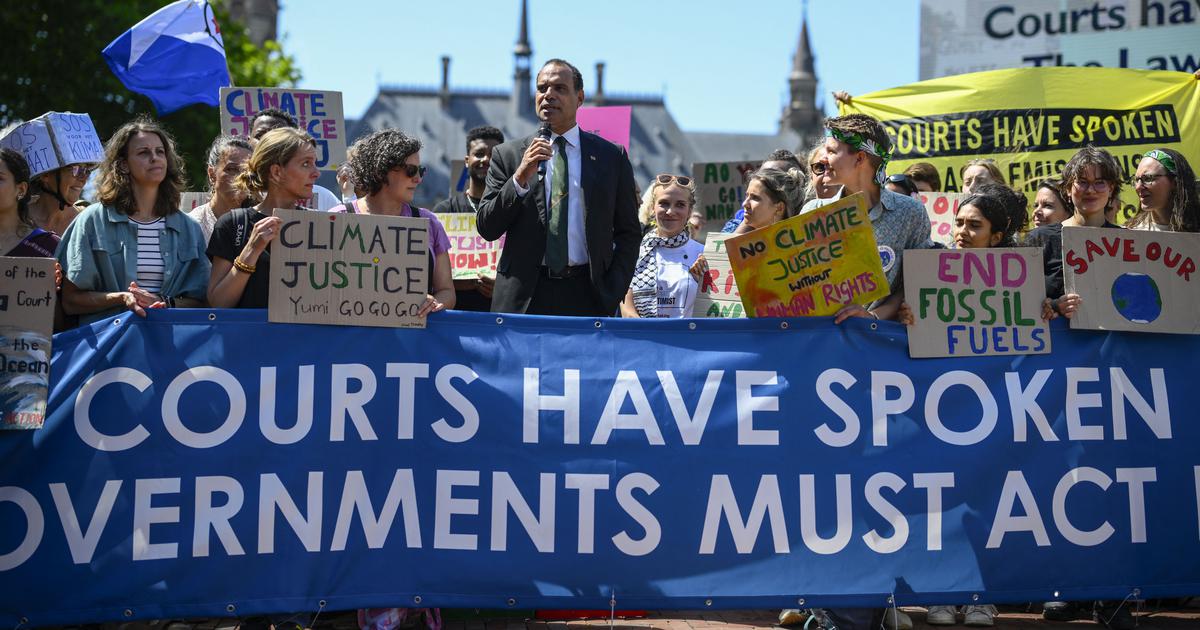In a much-awaited readout of its advisory opinion on climate change, the president of the International Court of Justice Iwasawa Yuji on July 23 spelt out in crystal-clear terms the legal and customary obligations of states under international law and climate treaties to ensure the planet survives the catastrophic impacts of climate change.
The opinion paved the way for states to be held accountable for fossil fuel emissions and the resultant climate harm. The order has been hailed by the Pacific Islands states especially, Vanuatu, which led the global demand for the opinion, as unprecedented and as going above all expectations.
The advisory opinion clearly mentioned that failure of states to take measures to reduce greenhouse gas emissions by continuing fossil fuel production, granting exploration licences or fossil fuel subsidies constituted an internationally wrongful act. States also have an obligation to regulate private actors as a matter of due diligence.
In relation to climate damage, the court held that in the event that restitution should prove to be materially impossible, responsible states have an obligation to compensate. Some states argued during the hearing in December that it was difficult to fix responsibility. But the court held that it was scientifically possible to determine the emissions contribution of each state in both current and historical terms.
The court also stated that injured states could separately invoke the responsibility of states committing wrongful acts that caused climate harm and seek reparations. Judge Yuji said climate change was more than a legal problem: it concerns an existential problem of “planetary proportions that imperils all forms of life and the very health of our planet”.
A complete solution to this daunting and self- inflicted problem, the court said, required all forms of human and scientific knowledge and human will and wisdom at the individual, social and political level to change habits, comforts and the current way of life. The court expressed the hope that its conclusions would allow the law to inform and guide social and political action to address the climate crisis.
Two questions
The court had been requested by the United Nations General Assembly to address two critical questions in its advisory opinion, the hearings for which were completed in December 2024 in The Hague.
The court first examined the obligations of states to address climate change for current and future generations under international laws including human rights law, the United Nations Charter, the Law of the Sea and climate treaties and agreements.
Secondly, it considered the legal consequences that states face if they failed to meet their obligations and caused serious climate harm.
The United Nations General Assembly resolution seeking this advisory opinion was the result of a six-year campaign by law students of the University of the South Pacific.
The advisory opinion was a transformational shift to seeking climate justice, said Vishal Prasad, the campaign director of Pacific Islands Students Fighting Climate Change. “Everything we hoped for is there,” he said. “We are grateful and happy with the outcome.”
The court also addressed intergenerational equity by underscoring the need for action to save the planet. It sends a strong message to young people and “gives us hope, a tool for climate justice, a strong tool to carry on the fight for climate justice”, Prasad said.
Placing responsibility
Some important observations made by the court include placing clear responsibility on polluters and those states causing climate harm and the obligation of such states to pay for damage and restoration for the loss of habitat and biodiversity.
The court clarified that states were obliged to adhere to both customary and international laws as well the climate treaties: the United Nations Framework Convention on Climate Change, the Kyoto Protocol and the Paris Agreement and other United Nations conventions on biodiversity, desertification as well as human rights and the Law of the Sea.
It was not merely enough to prepare Nationally Determined Contributions as obligated by the Paris Agreement that set out ambitions and targets of each state to curb greenhouse gas emissions but also to ensure that all states were collectively moving towards the common goal of curbing emissions.
‘Beyond expectations’
Ralph Regenvanu, Vanuatu Minister of Climate Change Adaptation, said the opinion was above and beyond his expectations because it directly addressed fossil fuels, reiterating that it was wrong for states to give exploration licences or to subsidise or produce fossil fuels.
The key contribution of the advisory opinion was two- fold, said Margaretha Wewerinke-Singh, legal counsel for Vanuatu’s case and international lawyer at Blue Ocean Law. She said the court has mentioned the whole spectrum of obligations that applies to the conduct of states that have caused climate change and that states that failed to regulate fossil fuels, and continue with subsidies, are liable.
“When you violate your obligations and commit a wrongful act, you need to stop that and you need to make reparations for the injuries that you have caused,” she said.
The implications of this advisory opinion are tremendous, she added. The advisory opinion endorsed the “polluter pays” principle. “We have come to the era of accountability and states can be held accountable for current and past emissions, states can be held to account for failing to meet their obligations.” she said.
Experts from the Center for International Environmental Law commended the ruling for offering a legal foundation for climate accountability. “The world’s highest court has spoken – reinforcing what frontline communities have long demanded: justice means remedy,” said senior attorney Joie Chowdhury of the centre.
The court’s decision lays a stronger legal foundation for climate accountability, offering a vital lifeline to frontline communities and nations, with far-reaching consequences for climate litigation, multilateral negotiations, and campaigns across the world. Merely adhering to the climate agreements was not enough the Court held and that states had an obligation to do more and their best to limit climate harm.
Added Sebastien Duyck, senior attorney at the Center For International Environmental Law, “When a court like the ICJ recognises new connections between conduct and legal norms, like the idea that failing to curb fossil fuels-related emissions can violate international legal obligations, it does not stop there. That recognition opens the door for further legal claims.”
Meena Menon is a freelance journalist and a postdoctoral visiting fellow at the Leeds Arts and Humanities Research Institute, University of Leeds, UK.










